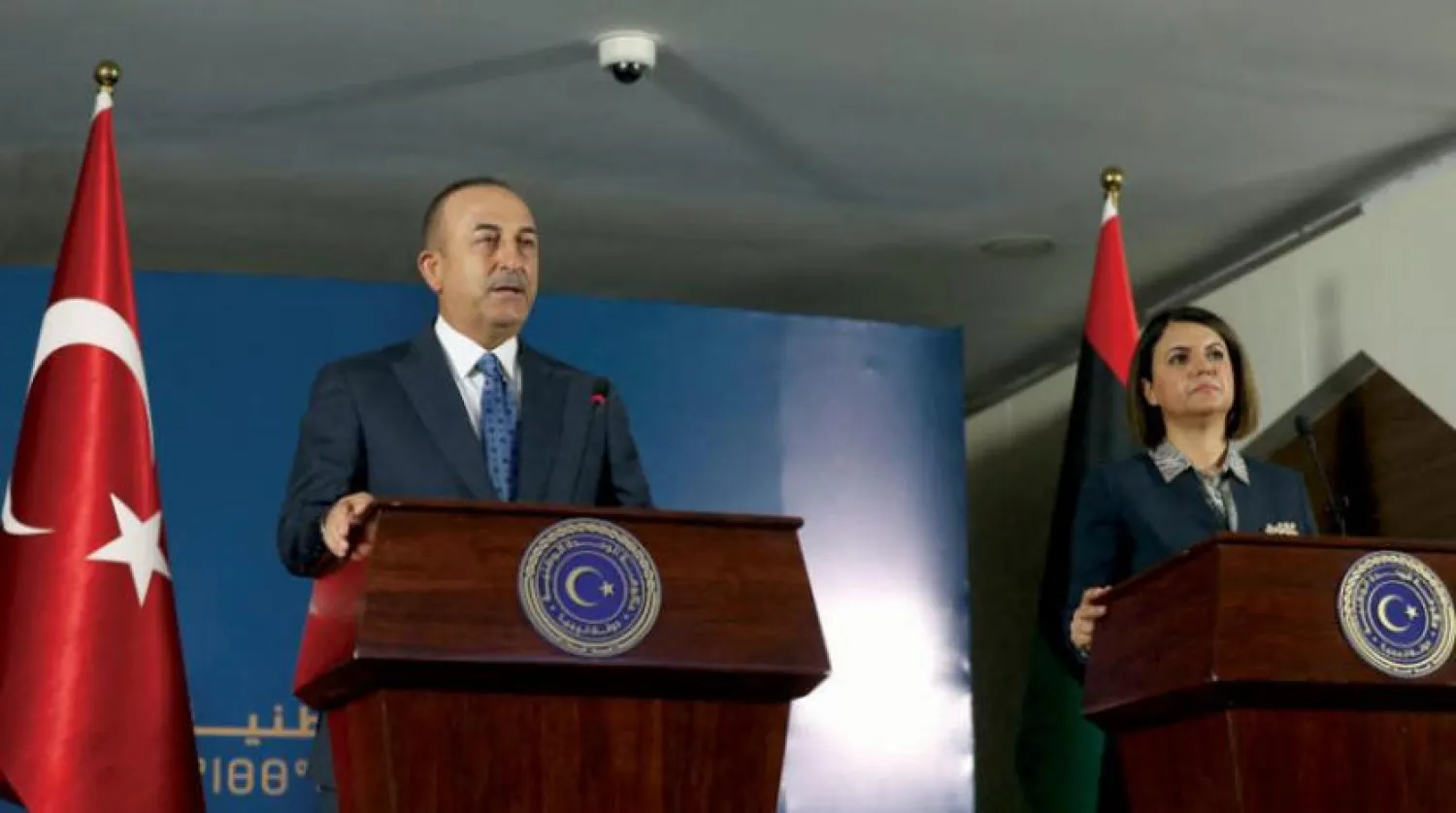Turkey delivered a firm and frank message to Libya’s new Government of National Unity (GNU), saying it was commitment to its military presence in the country in spite of calls for it to quit.
Turkish Defense Minister Hulusi Akar said on Tuesday that the military presence was aimed at “protecting the rights and interests of Libyans.” It was also aimed at “helping them” and “protecting Turkey’s interests in the Eastern Mediterranean.”
At the same time, he also underscored the importance of Libya’s sovereignty and independence.
Akar made his remarks during a meeting with Turkish military officers deployed in Libya. The meeting was attended by a number of Libyan officers, including chief of staff Mohammed al-Haddad. A Turkish delegation, which includes Akar and Foreign Minister Mevlut Cavusoglu, was in Tripoli this week on a surprise visit.
Akar vowed that Ankara will continue to “stand by fraternal and friendly countries as they pursue just causes and defend their rights and interests.” He added that Libya and Turkey “share common history and values.”
Moreover, he stated that Libya’s sovereignty and independence are “very important”, saying: “Turkey, with its Libyan brothers, will continue to work side by side to modernize and organize the Libyan armed forces.”
Turkish officials have repeatedly rejected calls by western countries to withdraw all foreign forces from Libya, including Turkish troops and Syrian mercenaries, that were sent to prop up the former Government of National Accord (GNA) in line with a military agreement they signed in November 2019.
The latest call for withdrawal was made by Libyan Foreign Minister Najla al-Manqoush on Monday during talks with Cavusoglu in Tripoli.
“We call on (Turkey) to take steps to implement all the provisions of ... the Security Council resolutions and to cooperate together to expel all foreign forces and mercenaries from the Libyan territories,” she said in an apparent rebuke.
Cavusoglu responded by saying that Turkish forces were in Libya as part of a training agreement reached with a previous Libya administration. “There are those who equate our legal presence ... with the foreign mercenary groups that fight in this country for money,” he said.
The GNU, which took power in March, is tasked with bringing together a country that has been torn apart by conflict for nearly a decade. It also aims to steer Libya through a general election on Dec. 24.
Security Council diplomats say there are more than 20,000 foreign fighters and mercenaries in Libya, including 13,000 Syrians and 11,000 Sudanese, along with Russians and Chadians.
The Security Council’s 15 member nations agreed in an informal meeting last week that getting the foreign fighters and mercenaries to go home was the only way forward, according to the officials.
Meanwhile, the Turkish delegation visiting Libya met with GNU chief Abdulhamid Dbeibeh and Presidential Council head Mohammed al-Menfi for talks on bilateral relations and the understandings signed between the GNA and Ankara.
The officials were in Tripoli less than a month after Dbeibeh paid a visit to Ankara at the head of large ministerial delegation.









